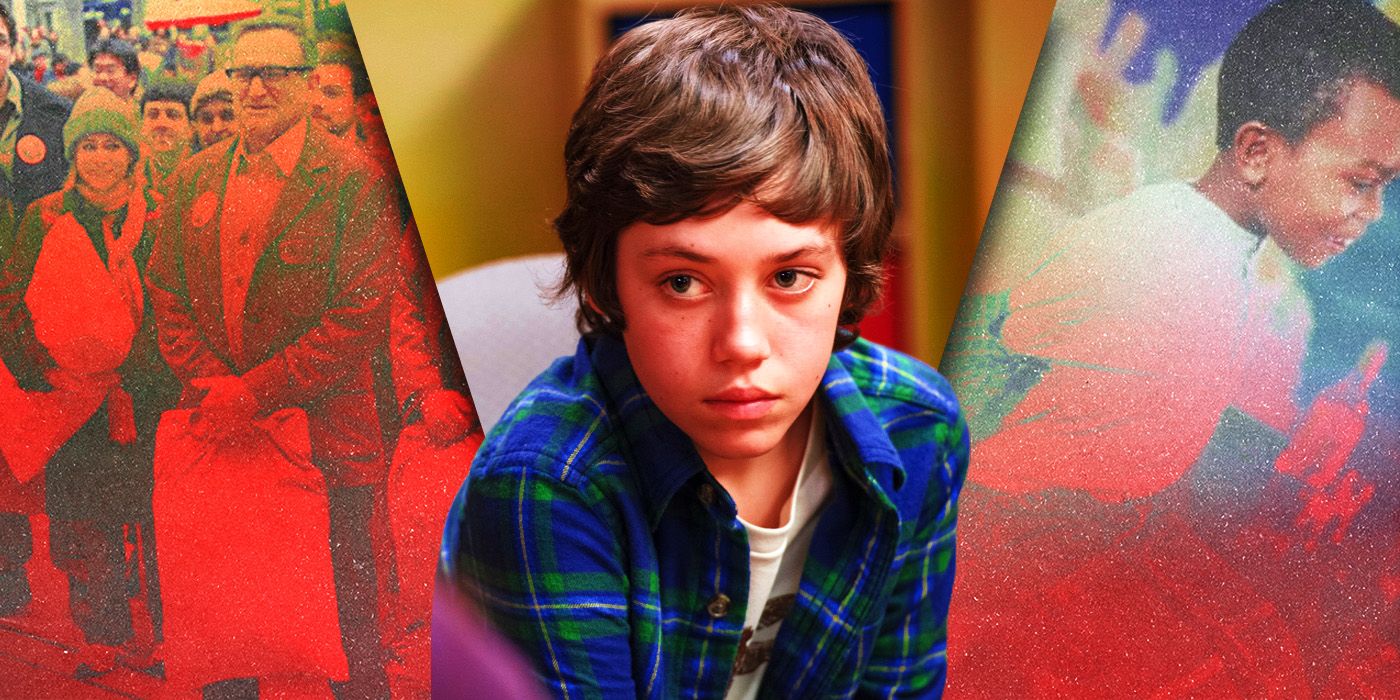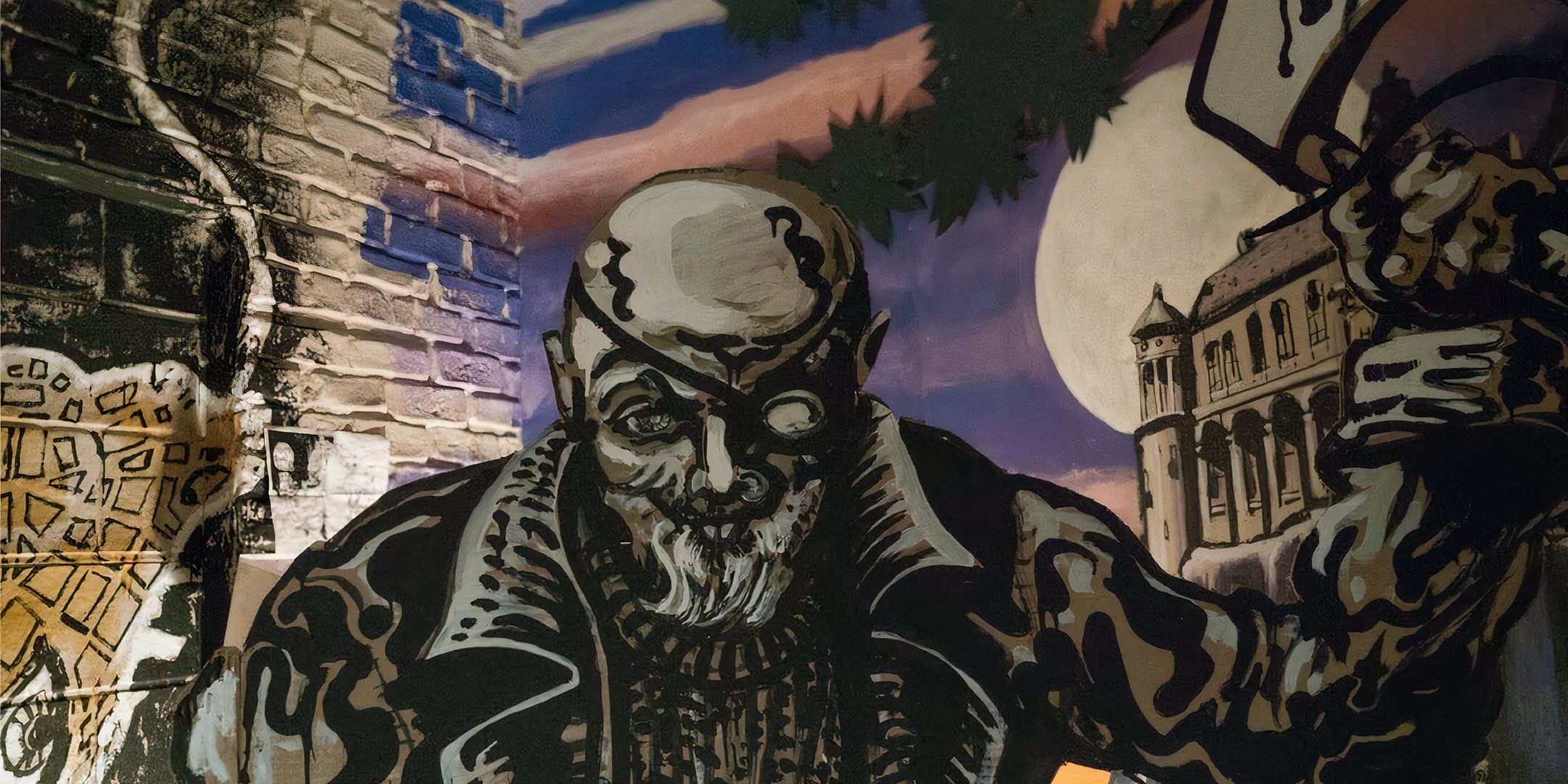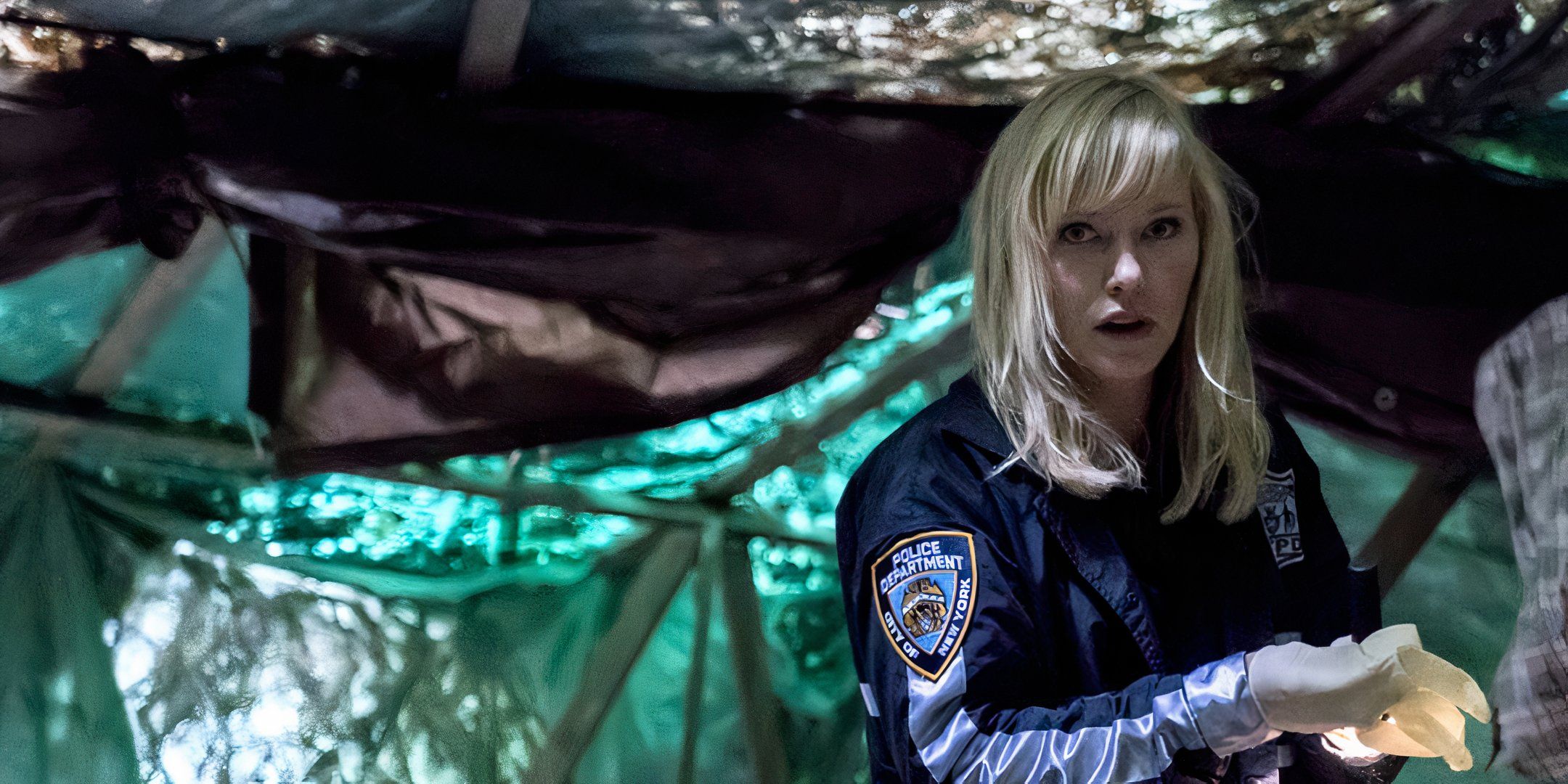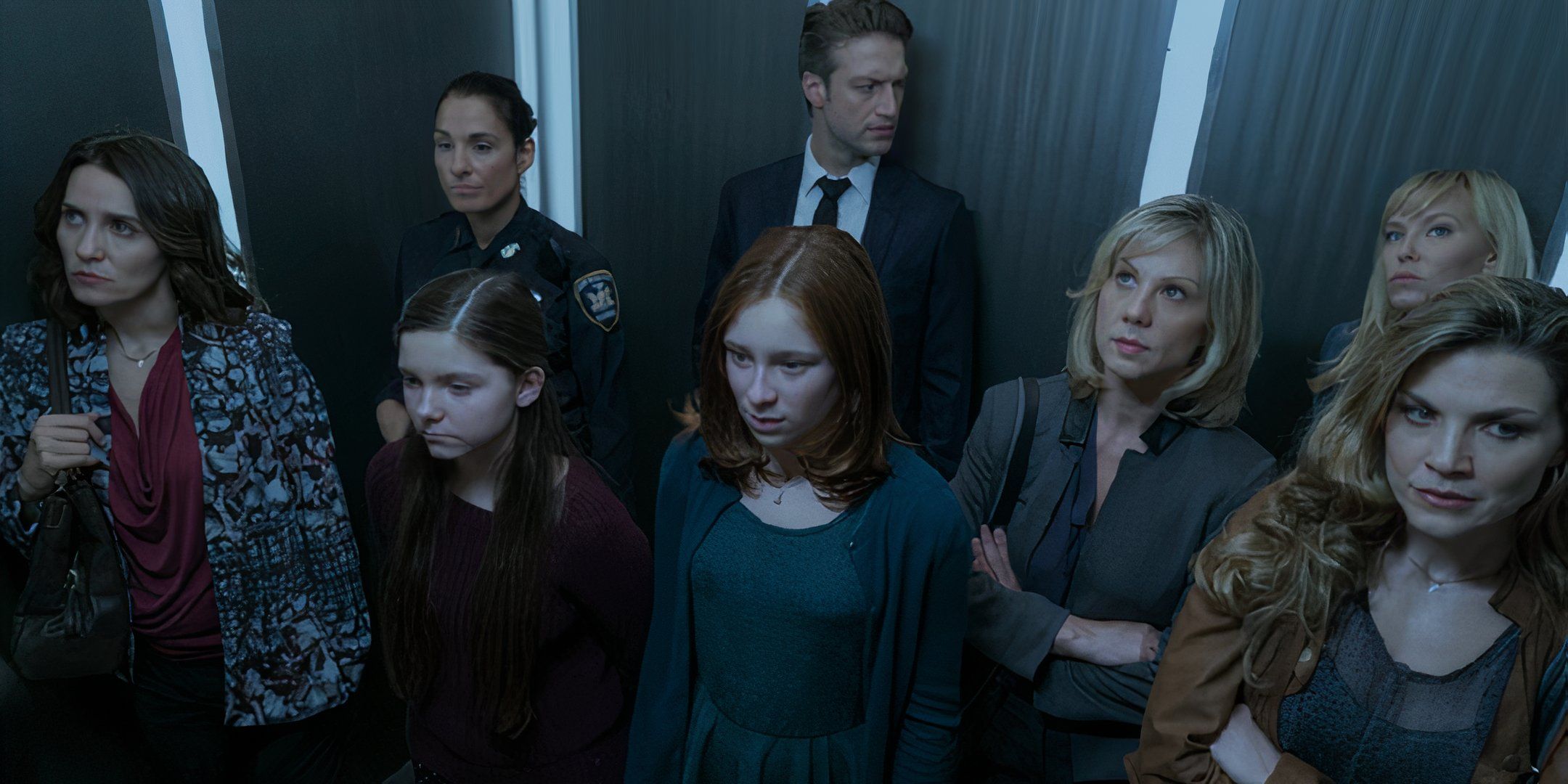
One TV series currently on air is particularly long-running. It delves deeper into darkness compared to the already grim Law & Order, as it examines brutal crimes committed against especially vulnerable individuals. Many episodes of Law & Order: SVU are gloomy, but some of its darkest episodes venture even further.
Law & Order: SVU is often applauded and occasionally faced criticism for tackling delicate subjects that other shows avoid. The program’s approach to these topics results in some impactful and unsettling episodes. At its most intense, SVU produces episodes that continue to haunt the viewer long after the show has ended.
Arthur W. Forney & Juan J. Campanella Directed Season 6, Episode 20
Despite earning 18 Emmy Award nominations over her illustrious career, including a remarkable 12 consecutive nods for Best Lead Actress in a Drama Series for her unforgettable portrayal of Jessica Fletcher on Murder, She Wrote, Angela Lansbury never managed to take home an Emmy Award. Her last nomination came when she was recognized for Best Guest Actress in a Drama Series for a joint appearance between Law and Order: SVU and Law and Order: Trial by Jury, the spinoff series focusing on trials.
In the episodes “Night” and “Day,” Lansbury portrays Eleanor Duvall, a wealthy individual who hides her troubled son’s crimes against immigrant women, including rape and subsequent hush money payments. Duvall takes drastic steps to shield her son from blame, but ironically, when he stands accused of these crimes and might escape punishment due to his mental instability, she sabotages his defense by refusing to acknowledge his condition publicly.
Martha Mitchell Directed Season 17, Episode 7
Patrimonial Burden” is an episode of Law & Order: SVU that takes inspiration from real-life events involving the Duggar family. The story revolves around a reality TV family whose 13-year-old daughter becomes pregnant, but the troubles don’t end there. Instead, the family attempts to conceal the scandal, prioritizing their own reputation over their daughter’s wellbeing.
It is revealed that the family has concealed multiple pregnancy scandals, including the youngest member being born from another daughter. Tragically, it’s been uncovered that the family’s pastor abused both daughters during religious trips and tried to marry the victim of his assault to avoid being charged with a crime. The most heartbreaking aspect is that the young girl thought the abuse and pregnancy were God’s intention, and her family endorsed child marriage, hiding behind their deep-rooted Christian faith to preserve their reputation. Despite the family altering their narrative in an attempt to protect the little girl, this disturbing incident remains difficult to watch.
Alex Zakrzewski Directed Season 2, Episode 21
In Law & Order: SVU, they frequently tackle grim crimes. An instance involves a serial killer who took the lives of four individuals in distinct incidents – a sex worker, a young woman, followed by a husband and his son. The puzzle lies in understanding how these victims are linked. However, the revelation comes as a shock: the killer, portrayed brilliantly by Richard Thomas, was mentally unbalanced, and there was no discernible pattern or motive behind his heinous acts.
This revelation uncovers a grim and disturbing fact: the murderer was consumed by syphilis, a disease that his insurer declined to cover. Unaware of his illness, he was left untreated, causing irreparable damage to his brain and driving him to commit atrocious acts. Had he been given basic antibiotics in time, he might have been saved. Instead, the insurance company opted not to inform authorities about his condition, a responsibility they held. In the end, the insurance company ended up compensating the victims of the murderer’s crimes generously.
Jonathan Kaplan Directed Season 12, Episode 20
In the TV show “Totem,” psychiatrist character Cap Jackson, played by Jeremy Irons, joins the team following a horrific incident where a young girl is brutally murdered and left with a 20-year-old doll. Jackson proposes that the killer was likely a woman, given that such acts are uncommon among females. As events unfold, it’s revealed that the girl’s piano teacher is the prime suspect, as her luggage was used to conceal the girl’s lifeless body. In a dramatic turn of events, she attempts suicide, but Jackson successfully revives her.
The audience comes to understand that the woman suffered physical and emotional abuse at the hands of her mother. Tragically, this abuse continues towards her younger half-sister, who is compelled to share a bed with her mother even in adulthood. It was revealed that the sister had committed incest and murder against a young girl, while the piano teacher accepted blame for these crimes to shield her younger sibling, feeling guilty for not preventing the harm.
Ted Kotcheff Directed Season 7, Episode 3
Mariska Hargitay consistently steals the spotlight at every awards ceremony she attends, whether she’s announcing an award on her own or with her colleagues, or she’s vying for an award herself. She eventually won the Best Actress in a Drama Series Emmy for her role as Olivia Benson after eight consecutive nominations. The episode that ultimately sealed the deal was “911” from Season 7. In this episode, Benson takes a call before leaving for the night, only to discover a young girl on the other end who is being coerced to create child pornography.
In the course of the episode, there’s a heavy emotional burden for Benson as his colleagues doubt the truthfulness of the little girl, yet he persists in keeping the line open, hoping to glean hints from her about her abuser. This intense situation earned Hargitay recognition and an award for his performance. Fortunately, the detectives manage to locate the girl just in time, only to discover that she was brutally murdered shortly after being buried alive by her kidnapper, who had tormented Benson with taunts when he overheard the girl talking to him on the phone.
David Platt Directed Season 9, Episode 15
Undercover Operation”
In this story, a young girl is tragically assaulted, and her uncle suspects that the perpetrator is a guard from the prison where her mother is detained. Detective Benson decides to infiltrate the same penitentiary as an inmate, with the aim of bringing down the suspected guard. From the start, Benson struggles with life behind bars, but matters escalate when the very guard under suspicion attempts to assault Benson, too.
In this difficult ordeal, Benson found herself tormented for quite some time following the attack. However, her harrowing experiences proved to be significant, as they enabled her to spot a distinctive mark on her assailant’s genitalia – a match to the description given by a young girl. This crucial identification eventually led to the arrest of the rapist. Yet, for Benson, who was deeply scarred, this small victory offered scant solace in the face of her profound trauma.
David Platt Directed Season 9, Episode 11
Initially, detectives Benson and Stabler apprehended a school teacher named Sarah Trent following allegations by a 15-year-old student that she had assaulted him. However, an unexpected twist arises when Sarah alleges that the student raped her instead. The situation, however, proves to be more complex than it appears, as contradictory evidence poses challenges for the investigating detectives.
In the “Impulsive” episode of “Special Victims Unit,” the various twists and turns give it a more ominous feel. Regardless of who is telling the truth between the teacher or student, a crime has undeniably occurred. The situation only becomes increasingly troubling as time passes. Moreover, the shocking twist at the end of this episode solidifies “Impulsive” as one of the most unsettling episodes in the “SVU” series.
Michael Slovis Directed Season 15, Episode 2
Initially, “Imprisoned Lives” revolves around a tragic incident where a young boy is left abandoned in Times Square. However, things take an alarming turn when authorities bring him home. In the basement of this residence, they uncover something far more distressing: women who have been held captive in cages for several decades. Shockingly, the boy recognizes these hostages as his family.
In the investigation carried out by the SVU detectives, it was uncovered that one of the women is in fact the boy’s mother, adding a grim layer to the recurring theme of sexual assault frequently depicted in the show. Similar to many other episodes of “Law & Order: SVU,” “Imprisoned Lives” draws upon real-world cases, making it one of the most harrowing episodes within the series due to its authenticity.
Peter Leto Directed Season 10, Episode 12
The investigation begins after a teenage girl’s body is discovered in the river. At first, Detectives Benson and Stabler speculate she could be a victim of human trafficking. But as the SVU team delves deeper, they uncover a shocking twist: the deceased was an exceptional student at school. This leads Benson and Stabler to suspect the girl’s father, given his history of physical abuse towards his daughters. However, the chilling revelation that follows is far more sinister.
The term “Hothouse” portrays a grim image of the intense expectations parents place upon their children for academic excellence. This particular episode of SVU not only exposes the horrific abuse inflicted by the victim’s father, aiming to make her excel at school. Furthermore, “Hothouse” underscores the disquieting ramifications of excessive academic pressure and competition that teenagers can encounter, driving them to perform actions beyond imagination in pursuit of perfection.
Jean de Segonzac Directed Season 1, Episode 21
The ‘Nocturne’ episode, which aired on SVU, demonstrated the show’s audacity to challenge television norms. This particularly grim installment portrays a victim of abuse transforming into an abuser himself. It’s a chilling representation of television that viewers should approach with care. However, it sheds light on the harsh reality of child abuse and its propensity to perpetuate, making it difficult to escape.
In “Law & Order: SVU,” Wilson Jermaine Heredia portrays a piano teacher who offers free lessons, but there’s a chilling catch – he secretly films instances of sexual abuse. This show isn’t shy about graphic content, and “Nocturne” is a testament to its ability to push boundaries. In fact, it might be one of the most unsettling SVU episodes yet, given that this episode was inspired by actual events.
Alex Chapple Directed Season 14, Episode 19
In “Born Psychopath,” an SVU episode, one of the most chilling criminals was introduced. The storyline kicks off when a school nurse notices a bruise on a girl’s abdomen. The girl alleges that she was shoved down the stairs by a monster, and initially, suspicions point toward the babysitter. However, as the investigation progresses, it is revealed that Henry, the girl’s brother, has been mistreating her, and those around him have taken minimal action to prevent it.
In most instances, children are seldom the initial suspects in criminal investigations. This is all the more astonishing when we consider cases like “Born Psychopath,” where it’s revealed that a child is the perpetrator instead of the victim. This episode offers a unique twist on conventional crime narratives while also shedding light on the serious issue of undiagnosed and untreated mental health problems in children. The darker tone of “Born Psychopath” makes it one of the most compelling episodes within the SVU series. Interestingly, a character as chilling as Henry reappeared in a 2021 episode, titled “Post-Graduate Psychopath,” further exploring his disturbing nature in the world of Law & Order.
Alex Chapple Directed Season 17, Episode 2
In the chilling documentary “Devil’s Dissections,” serial killer Gregory Yates levels grave allegations against Medical Examiner Carl Rudnick. Subsequently, in the subsequent episode titled “Criminal Pathology,” additional unsettling truths about Rudnick come to light. Eventually, the Medical Examiner stands trial for his misdeeds, only to unwittingly confess during a self-dialogue.
In “Criminal Pathology,” we delve deeper into the twisted psyche of Carl Rudnick and his criminal activities, and the disclosures regarding the Medical Examiner are unsettling. However, what sets this SVU episode apart as one of its darkest is the chilling notion that an M.E. could evade justice for such a long time, even while working side by side with detectives from the Special Victims Unit.
Arthur W. Forney Directed Season 2, Episode 12
In the second season’s episode titled “Secrets” of Law & Order: Special Victims Unit, we are given a stark portrayal of the unfortunate reality that survivors of sexual assault and harassment often fail to receive the justice they are entitled to. The narrative delves into abhorrent societal practices such as slut-shaming and blaming the victim. The plot revolves around the murder of a teacher, following which her hidden life is exposed.
The identity of her murderer is unveiled as one of her past romantic partners. During the trial, the defense attempts to evade guilt by disparaging the victim’s promiscuity, which was a result of a sex addiction triggered by trauma. In the final episode of “Secrets,” there is a controversial plea deal for manslaughter, leaving both the audience and the cast feeling repulsed.
Jennifer Getzinger Directed Season 16, Episode 5
A Dancer’s Lament” revolves around a college student who resorts to dancing in adult films to cover her tuition expenses. Unfortunately, two of her fellow students identify her at a gathering, leading to an attack during a party. However, when the case goes to court, it becomes clear that consent isn’t always straightforward, as her assailants argue that her refusal meant little after she participated in films featuring taboo content, which were scripted and contractually bound.
Pornstar’s Requiem,” similar to “Secrets,” deals with themes of misogyny and female sexuality in a thought-provoking manner. It mirrors how society often stigmatizes women for exercising their bodily autonomy, while simultaneously celebrating men for the same actions. The Season 16 episode delves into sex work and consent, revealing the attitudes that exist toward this profession, where it’s considered more shameful for a woman to be a sex worker than for a man to be a rapist. This is why sex workers are disproportionately affected by violence but rarely receive justice.
“Pornstar’s Requiem” and “Secrets” share the same theme of societal shaming of women for expressing their sexuality, while men are often praised. An episode in Season 16 explores sex work and consent, highlighting that it is seen as more shameful for a woman to be a sex worker than for a man to be a rapist. This attitude results in higher levels of violence against sex workers and less justice served for them compared to their male counterparts who commit similar crimes.
Arthur W. Forney Directed Season 4, Episode 6
As a devoted movie buff, I can’t help but draw parallels between my favorite series, “Law & Order: SVU,” and real-life crime-fighting. In one gripping episode titled “Angels,” the Special Victims Unit delves into the darkest corners of society, targeting heinous criminals like child predators and traffickers.
When a young boy’s lifeless body is found, it’s clear that he had been running from something terrible. Tracing his steps leads the detectives to the cold, lifeless body of his abuser. As they peel back the layers of this horrific case, they uncover a chilling network of predators who may have played a role in this tragic murder.
Law & Order: Special Victims Unit frequently delves into child sexual abuse cases, some of the most harrowing stories within the show’s narrative. The episode “Angels” stands out as one of the rawest portrayals, examining not only the perpetrators but also those who aid them in their heinous acts. It doesn’t shy away from depicting the devastating consequences of these actions and the extensive network that sustains such cruelty.
Jean de Segonzac Directed Season 16, Episode 6




Numerous TV series focusing on procedures and horror movies have been influenced by the popular internet creepypasta, Slender Man. Among these is a show titled “Glasgowmath’s Wrath,” which shares this inspiration. Unlike other portrayals, however, this episode of SVU raises questions about the true reasons behind the crimes committed by a twelve-year-old girl. In “Glasgowmath’s Wrath,” friends Perry and Mia venture into a park at night in search of the mythical Glasgowman, accompanied by Mia’s younger sister. Unfortunately, they are attacked, and as the SVU team investigates, the clues suggest that Perry may be responsible for the crime.
The chilling nature of “Glasgowman’s Rage” intensifies towards its conclusion, when Perry admits to assaulting Mia’s sibling upon the Glasgowman’s instructions. Carisi suspects Perry requires psychological assistance, but at the episode’s close, he witnesses Perry and Mia covertly touching pinkies, causing Carisi to question whether Perry was truthful about his actions. The thought-provoking scenario of a young girl attacking another and feigning instability as a defense makes “Glasgowman’s Rage” one of the most troubling SVU episodes that will undoubtedly leave viewers stunned by its conclusion.
Steve Shill Directed Season 2, Episode 20
The TV series “Pique” delves into a woman’s murder investigation, but a shocking twist emerges when her killer is revealed. Far from wrapping up the case, this revelation leads us down a harrowing path of incest and parental abuse. To this day, “Pique” stands as one of the darkest and most haunting episodes of SVU, leaving a lasting impact on viewers due to its unsettling subject matter.
In its second season, Law & Order: SVU found its unique narrative voice and began to explore the type of stories it wanted to share. The episodes progressively delved into deeper, darker themes, portraying increasingly intense and heart-wrenching crimes and criminals. “Pique,” an episode from Season 2, exemplifies this approach by pushing boundaries with a shocking revelation involving a mother and her son.
Fred Berner Directed Season 20, Episode 11
In “Plastic”, which is reminiscent of earlier seasons, Law & Order: SVU delves back into hard-hitting themes relevant to television, drawing inspiration from actual sex crimes that have occurred in real life. This particular episode focuses on the SVU team’s investigation into a famous plastic surgeon and his partner, both suspects in a case that unravels at an alarming pace.
The TV series “Plastic” initially delves into a tense investigation of rape involving prominent personalities, including surgeon Heath Barron. His questionable actions and exploitation of former victim Sadie Parker to assist him are disturbing and could be hard to watch. Moreover, the show’s depiction of public allegations against high-status individuals accused of sexual assault is hauntingly realistic, unfortunately echoing numerous real-life scenarios.
David Platt Directed Season 9, Episode 17
In the gripping TV showcase, “Authority,” Robin Williams lends his acting prowess posthumously. This chilling episode of “Law & Order: Special Victims Unit” delves into a harrowingly dark narrative. The villain in this tale is Merritt Rook, an audio technician who manipulates others into committing heinous sexual assaults by assuming the guise of a powerful authority figure. He deceives individuals by impersonating a detective over the phone and compelling them to engage in highly disturbing activities.
Episode ‘Authority’ from the series Law & Order: Special Victims Unit is based on true events, drawing connections to both the Milgram psychology experiment and a crime that occurred in 2004. This episode stands out among other SVU episodes not only because of its villain but also due to the thought-provoking questions it poses about the audience’s real-life relationships with authority.
Michael Pressman Directed Season 17, Episode 13
In my humble opinion, “Forty-One Witnesses” is an emotionally gripping masterpiece that leaves a lasting impact. The story revolves around a young woman who’s brutally attacked outside her apartment building, with a horde of teenagers as the perpetrators. Tragically, despite her desperate pleas for aid and numerous onlookers, not a soul steps forward to help, call the authorities, or stand up against her assailants in court.
The show ‘Forty-One Witnesses’ portrays a grim and distressing situation with an eerie authenticity. Simultaneously, it exposes a troubling aspect of society’s unnerving tendency to disregard victims of sexual assault. The stark image of onlookers transforming into indifferent bystanders effortlessly makes ‘Forty-One Witnesses’ one of the most somber episodes of Law & Order: Special Victims Unit.
Read More
- OM PREDICTION. OM cryptocurrency
- Carmen Baldwin: My Parents? Just Folks in Z and Y
- Jellyrolls Exits Disney’s Boardwalk: Another Icon Bites the Dust?
- Jelly Roll’s 120-Lb. Weight Loss Leads to Unexpected Body Changes
- Despite Strong Criticism, Days Gone PS5 Is Climbing Up the PS Store Pre-Order Charts
- Moo Deng’s Adorable Encounter with White Lotus Stars Will Melt Your Heart!
- Solo Leveling Season 3: What You NEED to Know!
- Billy Ray Cyrus’ Family Drama Explodes: Trace’s Heartbreaking Plea Reveals Shocking Family Secrets
- Beyond Paradise Season 3 Release Date Revealed – Fans Can’t Wait!
- Disney’s ‘Snow White’ Bombs at Box Office, Worse Than Expected
2025-04-19 05:57